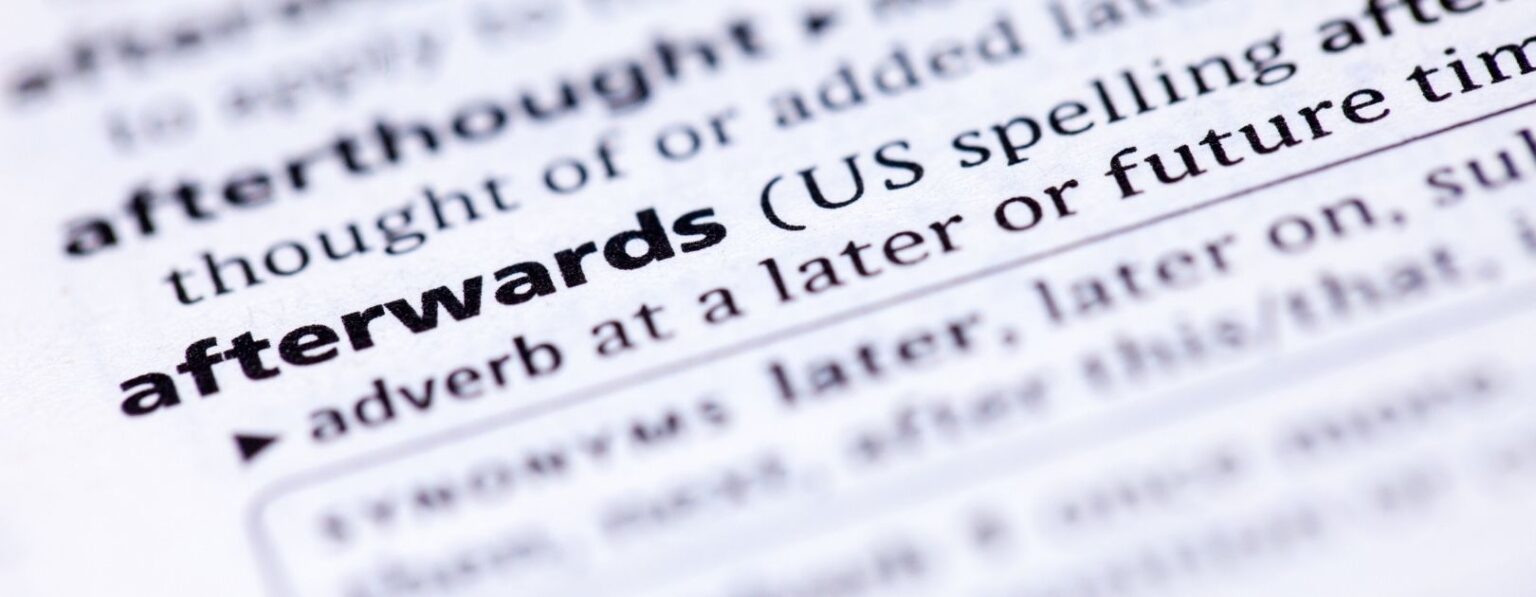Another one of our favorites, homophones! Just say afterword and afterwards. Is there any difference? Nup! But, let’s go to their spellings, afterwards has an ‘a’ and ‘s’ while afterword is spelled with an ‘o’. Is there any difference between them? Of course, why else will we write such a long article?
Afterwards
Afterwards is a variation of afterward. It is an adverb that refers to something associated with a later time. People in America tend to add the extra ‘s’ to the word afterward while people out of America use the original form of the word i.e. afterward. It also is a synonym for ‘later’.
Afterward
Now, this is a more formal word. People use it in the official language or to make something sound professional. Afterward is used to determine a series of events. It determines what happened after something, like a chronology of events. It can also be used to describe a noun i.e. an adjective. For example, “Our afterward plan was to party till the end of the night.”
Afterword
Those of you who read novels and books should be familiar with this word. Apart from this word you would also be familiar with the words epilogue and prologue. The prologue is the start of the novel while the epilogue is the concluding part of any book. Like ‘PS’ is to letter, afterword is to book. In afterword, the author either concludes the book or replies to critique, or another eminent personality gives a review about the book.
Usage
Afterward and afterwards are synonyms. One just has an extra ‘s’, so will we discriminate? They are adverbs and determine the direction of time in a sentence. Afterward is a more formal way of saying afterwards. Americans use the word afterward, while the British people use the traditional form of the word, afterwards.
Afterword is usually written down and not spoken. It is the last part of any novel, book, etc. It adds insight to the book and gives a smooth ending to it or a chance to reply to his critique.
Examples
Afterwards:
– We went to eat ice cream afterwards.
– Afterwards she went to the office to finish the rest of the work.
– We went to the pump afterward, to get a refueling done.
Afterward:
– We ate cake afterward a lavish dinner.
– The mother afterward packed the leftovers.
– Afterward the killer burnt the body with acid and threw away the remains.
Afterword:
– In the afterword the author left a cliffhanger for his next novel.
– In the afterword the author in future publications cleared out a lot of doubts.
How to Remember the Difference
Afterword and books have one thing in common. Guess what? The Os. So, when the word afterword is written rest assured, it will be in the context of novels and books.
Afterward and afterwards are used as adverbs. So the best way to remember afterwards is that since it is more of a British word and Sussex is a town in the country. Since Sussex has an extra ‘s’ in afterwards.

